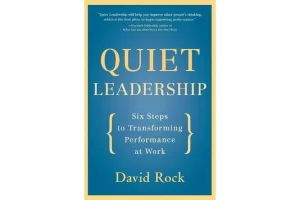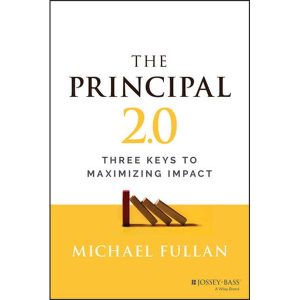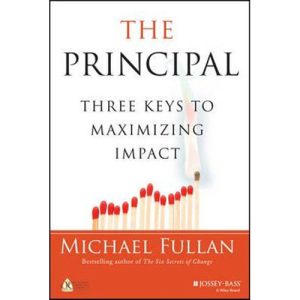There are two required texts for the Aotearoa AP/DP programme. There is no particular time frame to read these in over the course of the programme.
Please select either Michael Fullan text as some may already have this text in their schools. It also provides good conversation between delegates, to discuss how Fullan’s ideas have changed over time.



Delegates may choose to engage with fellow participants online to discuss their thoughts on the required texts. This is optional but a good way to connect with fellow delegates, see others’ perspectives and understand how peers have implemented text ideas in their kura. Add your reflections in the comments section below.

5 Responses
I have been really enjoying the text Quiet Leadership. I am reading it alongside my Principal at the same time so we can discuss our findings. I have really found the listening aspect fascinating. What are you listening for? It is so interesting to begin to see you will only listen for what you know to reinforce your values and thoughts. “pay special attention to what we expect to hear”. How often have I gone into conversations only hearing what I want.
It has been interesting to read about “filters” we already have. We have already developed filters for all of those people we manage and made decisions about them a long time ago”. And we tend to be unconscious of them. “When we listen through filters we are fitting people into the predetermined boxes rather than helping them be all they could be.” It is so important as leaders to help people to THINK but also to LISTEN with intent. Being self aware of how I listen has been VERY interesting.
Quiet Leadership also resonated with me, an interesting focus on not needing to be directive or forceful, instead that change can be achieved by supporting staff to improve their own thinking to solve problems . I like the thought of being a facilitator of change rather than a director of change through asking thoughtful questions, encouraging people to not only reflect, take ownership, but come up with their own solutions. “Quiet” support of a thinking environment to guide collegues to solve problems and action change in the school. Sometimes easier said than done in the day to day of a busy school when you want to see changed actioned quickly and time seems so precious
As a Deputy Principal, Quiet Leadership by David Rock has influenced how I approach supporting staff. Rather than jumping in to solve problems, I’ve learned to focus on helping others think more clearly through active listening, reflective questioning, and creating space for their own insights. This coaching-style approach dove-tails nicely with my Solutions focused coaching PLD, and builds trust, encourages ownership, and supports real professional growth in the teachers I work with. It’s been especially valuable in challenging conversations, helping me stay calm, present, and focused on solutions. By shifting from directive to reflective leadership, I’m better able to empower my team and create a more collaborative, positive school culture—ultimately benefiting both staff and learners.
I’ve just finished reading The Principal 2.0. I also found it interesting how little of an impact Transformative leaders (0.11) and Instructional leaders (0.42) actually had on student achievement. What really stood out for me was that everything really comes back to relationships. The relationships you create and foster within the school is crucial – for all stakeholders (teachers, students, whānau and community). I liked this – “Leaders have to be relational before they can be aspirational”. In the three keys to maximizing impact – Spirit Work, Contextual Literacy and Systemness, positive relationships were important. Taking teachers along the journey with you is vital. I also enjoyed reading one principal’s comments on hiring new staff. It highlighted the need for staff to be open to learning and very open in terms of their mindset. Mentions of wellbeing and the changes in society over the last decade were also aspects that stood out to me.
Principal 2.0: Loved this. totally agree with the 6 Cs (character, citizenship, collaboration, communication, creativity, critical thinking) It’s something we’ve talked about at school. It is good to know about the results of the Covid survey, albeit an study in the States. Interesting to note how little standardised testing meant but not new about the equity gap of homes. in chapter 2 it’s interesting to note about the types of leaders that we have…and the pendulum swings from the promotion of Transformative (too vague) and Instructional leaders (too narrow); both not having sufficient impact. So we need to build the capacity of the Teacher. Much of this reading took me to Viviane Robinson’s book on leadership and i found myself reading this with ‘new eyes’ and more relevance. further on, SGO- Student Growth Objectives – being too odious. this SGO sounds great on paper, but doesn’t work in reality.